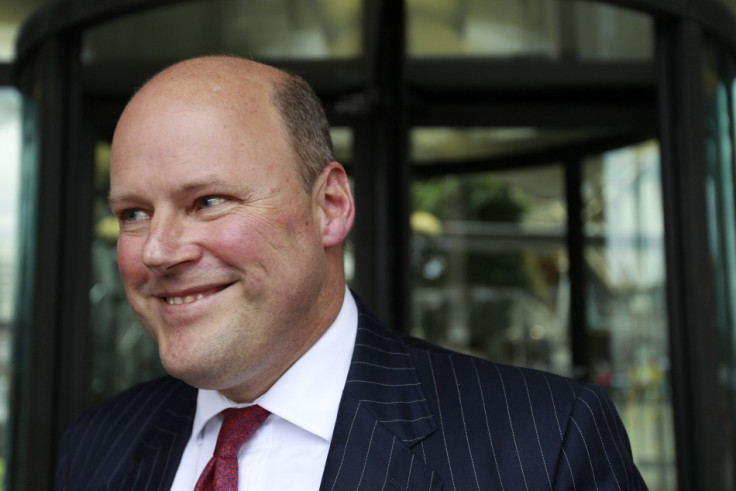RBS Shares Plunge After Stephen Hester Quits [VIDEO]

RBS shares plunged by as much as 7% in early trading following the shock announcement that the taxpayer-owned bank's chief executive, Stephen Hester, will quit as soon as a replacement is found.
The British bank, which is 82% owned by the state after a government bailout during the financial crisis prevented it from going bust, is rumoured to be nearing a full return to the private sector, but the latest share price tumble wiped around £2bn off of RBS's market value.
Hester was meant to oversee the completion of RBS's volte-face from the risk-taking casino-style investment bank it was before the crisis into a UK economy-focused high street bank there to support small business lending and consumer banking.
However, the RBS board and Chancellor George Osborne wanted a new chief executive to oversee the privatisation of the bank after Hester managed the balance sheet reforms, which saw the winding down of toxic risky assets bought up before the economic collapse.
The UK government ploughed £45bn ($70.4bn, €52.8bn) of taxpayers' money into RBS during the crisis to underpin it, after the then-Labour Chancellor Alistair Darling deemed the bank "too big to fail". Darling and others feared an RBS collapse would have a domino effect on other banks in the market and trigger a depression.
RBS has already returned £5.5bn in fees to the government. Accounting for inflation and deducting the fees paid back so far, the government would need to make around £46bn from the sale of its RBS stake just to break even.
The average price the government paid to purchase RBS shares during the bailout, which came in two stages, was 502.26p per share. RBS calculates that to break even the average sale price will have to be 440.64p.
Hester will likely leave by the end of 2013 and take home a pay-off worth up to £5.8m.
"We are now in a position where the government can begin to prepare for privatising RBS. While leading that process would be the end of an incredible chapter for me, ideally for the company it should be led by someone at the beginning of their journey," Hester said after the news of his exit broke.
Hester added that it had been a "bruising and difficult job" after he had received criticism for not lifting the RBS share price enough and for the size of his remuneration package. After public outcry he returned a £1m bonus package in 2012.
Chancellor Osborne praised Hester's time at RBS.
"When Stephen Hester took on the job it was a bust bank with a broken culture and posed a huge risk to financial stability. RBS today is safer, stronger and better able to support its customers," Osborne said.
"I want to commend Stephen Hester for everything he has done to make this turnaround possible. The size and complexity of the bank has been significantly reduced, with a far greater focus on serving its UK customers.
"Stephen Hester has made an important contribution to Britain's recovery from the financial crisis.
"Having brought RBS back from the brink, now is the time to move on from the rescue phase to focus on RBS being a UK bank that provides greater support to the British economy, helping businesses and job creation here, and which can return to the private sector in a way that ensures value for the taxpayer."
© Copyright IBTimes 2025. All rights reserved.






















